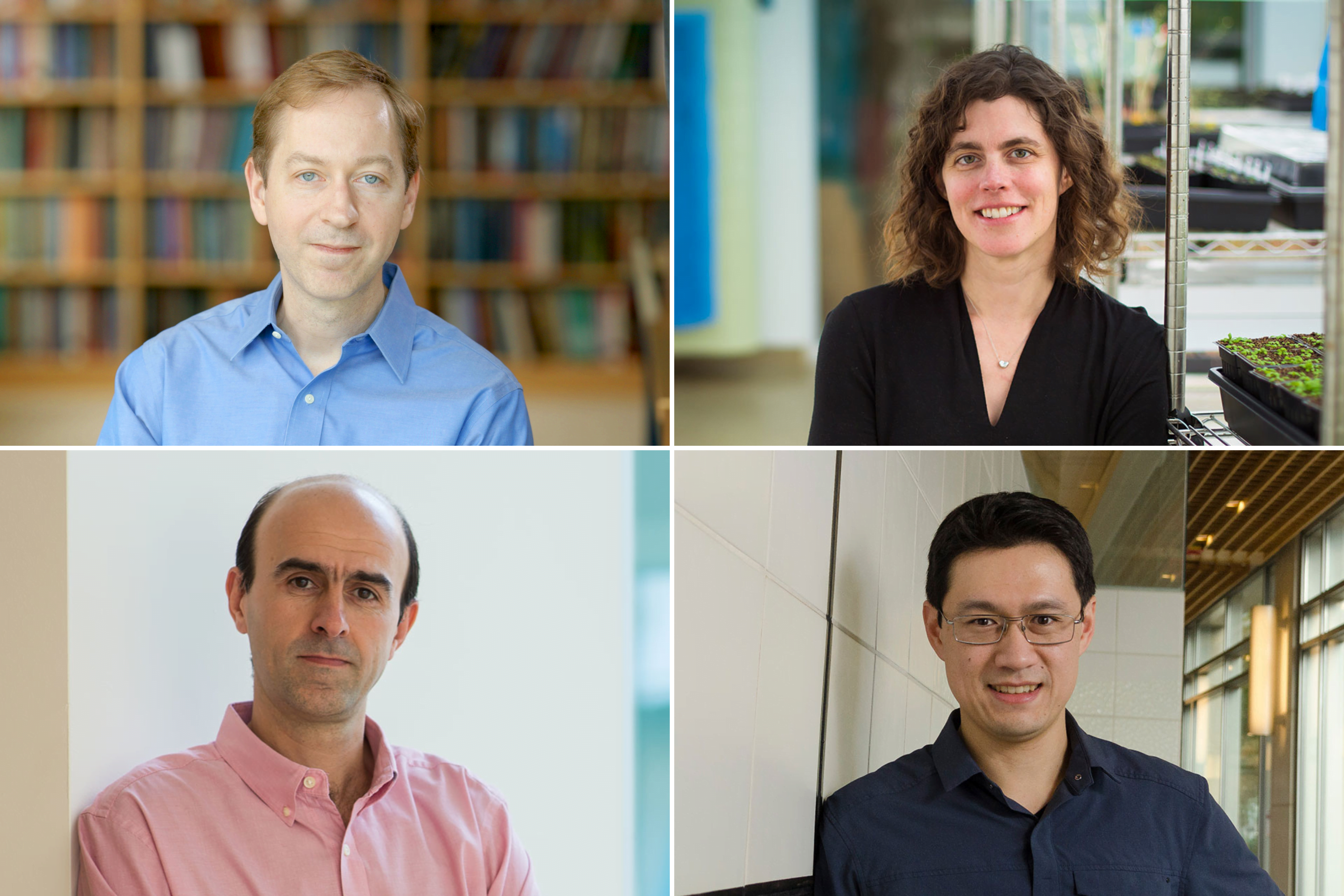The Howard Hughes Medical Institute (HHMI) has announced its 2024 investigators, including four from MIT’s School of Science: Steven Flavell, Mary Gehring, Mehrad Jazayeri, and Gene-Wei Li.
Additionally, four other individuals with MIT connections were honored: Jonathan Abraham, a graduate of the Harvard/MIT MD-PhD program; Dmitriy Aronov PhD ’10; Vijay Sankaran, a graduate of the Harvard/MIT MD-PhD program; and Steven McCarroll, a member of the Broad Institute of MIT and Harvard.
Every three years, HHMI selects around two dozen new investigators who have significantly impacted their fields to receive substantial, fully discretionary funding. This funding can be reviewed and renewed indefinitely. The award, approximately $11 million per investigator over the next seven years, allows scientists to continue working at their current institutions, covering their full salaries, and providing financial support for flexible research directions.
From nearly 1,000 candidates this year, 26 researchers were chosen for their ability to push the boundaries of science and their efforts to create highly inclusive and collaborative research environments.
« When scientists create environments where others can thrive, we all benefit, » says HHMI President Erin O’Shea. « These new HHMI investigators are extraordinary, not only for their exceptional research efforts but also for mentoring and empowering the next generation of scientists to work alongside them at the forefront of progress. »
Steven Flavell
Steven Flavell, Associate Professor of Brain and Cognitive Sciences and investigator at the Picower Institute for Learning and Memory, aims to uncover the neural mechanisms that generate the brain’s internal states, such as different motivational and arousal states. Working with the model organism C. elegans, his lab has used genetic, systemic, and computational approaches to link brain neural activity to specific animal behaviors. They have also mapped the anatomical and functional organization of the serotonergic system, showing how it modulates C. elegans‘ internal state. As a newly appointed HHMI investigator, Flavell will continue research to fundamentally understand how internal states arise and influence nervous system behavior. The work will involve whole-brain neural recordings, computational modeling, detailed studies of neuromodulatory system organization, and investigations into how synaptic wiring limits an animal’s ability to generate different internal states.
« I believe it should be possible to define the basis of internal states in C. elegans in concrete terms, » says Flavell. « If we can build a thread of understanding from the molecular architecture of neuromodulatory systems to changes in whole-brain activity and state-dependent behavioral changes, we will be in a much better place to think about the basis of brain states in more complex animals. »
Mary Gehring
Mary Gehring, Professor of Biology and Senior Member and David Baltimore Chair in Biomedical Research at the Whitehead Institute for Biomedical Research, studies how plant epigenetics modulates plant growth and development, aiming to discover the essential genetic and epigenetic elements of plant seed biology. Ultimately, the Gehring Lab’s work provides the scientific foundation for designing alternative seed development methods and improving plant resilience in an era where global agriculture is particularly precarious due to climate change.
The Gehring Lab uses genetic, genomic, computational, synthetic, and evolutionary approaches to explore heritable traits by studying repetitive sequences, DNA methylation, and chromatin structure. The lab primarily uses the model plant A. thaliana, a mustard family member and the first plant to have its genome sequenced.
« I am delighted that HHMI has extended its support to plant biology and thrilled that our lab can benefit from its generous support, » says Gehring. « This appointment gives us the freedom to step back, take a fresh look at scientific opportunities, and pursue those that interest us most. And that is a very exciting prospect. »
Mehrad Jazayeri
Mehrdad Jazayeri, Professor of Brain and Cognitive Sciences and investigator at the McGovern Institute for Brain Research, studies how the brain’s physiological processes give rise to the mind’s capabilities. The Jazayeri Lab integrates insights from cognitive science, neuroscience, and machine learning with experimental data from humans, animals, and computational models to develop a computational understanding of how the brain creates internal representations, or models, of the external world.
Before joining MIT in 2013, Jazayeri earned his bachelor’s degree in electrical engineering, specializing in telecommunications, from Sharif University of Technology in Tehran, Iran. He completed his master’s in physiology at the University of Toronto and his PhD in neuroscience at New York University.
With his HHMI appointment, Jazayeri plans to explore how the brain enables rapid learning and flexible behavior—central aspects of intelligence that have been challenging to study using traditional neuroscience approaches.
« This is a recognition of my lab’s past achievements and the promise of exciting research we wish to undertake, » he says. « I look forward to engaging with this wonderful community and making new friends and colleagues while elevating our science to the next level. »
Gene-Wei Li
Gene-Wei Li, Associate Professor of Biology, works to quantify the amount of protein produced by cells and how protein synthesis is orchestrated within the cell since opening his lab at MIT in 2015.
Li, whose background is in physics, attributes the lab’s discoveries to the skills and communication within his research team, allowing them to explore unexpected questions that arise in the lab.
For example, two of his student researchers discovered that coordination between transcription and translation fundamentally differs between the model organisms E. coli and B. subtilis. In B. subtilis, the ribosome lags far behind the RNA polymerase, a process the lab termed « runaway transcription. » The discovery revealed that this type of decoupling between transcription and translation is widespread among many bacterial species, challenging the long-standing molecular biology dogma that protein synthesis machinery and RNA polymerase work side by side in all bacteria.
HHMI’s support gives Li and his team the flexibility to pursue fundamental research leading to discoveries at their discretion.
« Receiving this award allows us to be bold and do things on a scale that wasn’t possible before, » says Li. « The discovery of runaway transcription is a great example. We didn’t have a traditional grant for that. »



